ADSactly Poetry: Arthur Rimbaud, The Seer Poet Of Modernity (and IV)
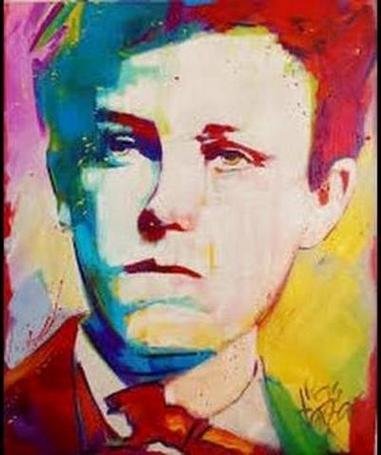
Esteemed readers of @ADSactly, with the post I present to you today we close our discussions of the life and work of the poet Arthur Rimbaud. If you are interested in reading the past articles on him, you can go to 1, 2 and 3. Having considered important texts of his, we still need to address at least one of his two fundamental books: A season in hell (we have no room for Illuminations). We will not be able to dwell on them much, but we will point out at the end the main contributions and the literary valuation of Rimbaud.
A season in Hell
The generalized opinion dates its definitive version as after its rupture with Verlaine, after the hedonistic but conflicting experience of its trip and stay with this in London and Brussels.
It is an extensive poem written in prose that, apparently, he began to elaborate in the middle of 1872 and finished in 1873. As far as is known, it was published by him, for which he went to an English publisher, in an edition of one hundred copies, of which a few were personally given away among a select group of friends and the rest were abandoned in the basement of the publishing house.
Several scholars have noticed the intertextual relationship - a very modern feature, by the way - with other books or works such as the Bible and Divine Comedy by Dante, among others.
A season in Hell is composed of 9 parts, between which there is a relationship of meaning. Rimbaud presents us, with the vehement and disconcerting verbal force that already characterized his poetry -now more radical-, the hard and cathartic journey of a poetic subject through a life that is offered to him attractive, first of all, but that is later revealed in his existential equivocation. It assumes a voice in first person grammatical (I), but not directly identifiable with the empirical author, beyond possible similarities. I will quote several fragments:
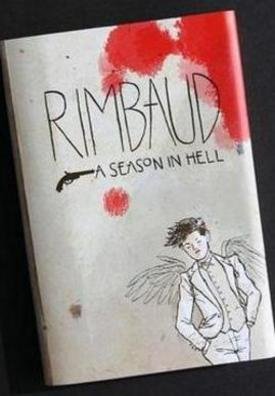
Before, if I remember correctly, my life was a feast where all hearts were opened, where all wines ran.
One night, I sat Beauty on my knees. - And I found it bitter. - And I insulted her.
I armed myself against justice.
I escaped. O bush, oh misery, oh hatred! You were
trusted my treasure!
I succeeded in making all human hope vanish in my spirit. Against all joy, to strangle it, I jumped without the noise of the fierce animal.
I called the executioners to bite the butts of their rifles while perishing. I called the plagues to drown in the sand, the blood. Misfortune was my god. I lay down in the mud. I dried up in the air of crime. And I made very bad passes to the madness.
And spring brought me the horrible laugh of the idiot.
(…)
From "Alchemy of the Word"
I invented the color of the vowels! - A, black; E, white; I, red; O, blue; U, green. - I adjusted the form and movement of each consonant and, with instinctive rhythms, I boasted of inventing a poetic verb accessible, someday, to all the senses. I reserved the translation for myself.
At first it was a study. I would write silences, nights, limit the inexpressible. I fixed vertigos.
(…)
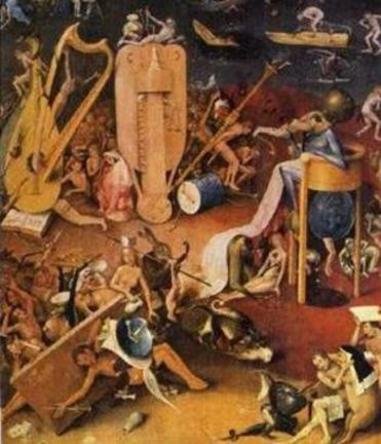
From "Tomorrow"
Didn't I once have a kind, heroic, fabulous youth, worthy of being written in gold leaf? - Too lucky! Why crime, why error, have I deserved my present weakness? You, who expect the animals to sunk in sorrow, the sick to despair, the corpses to have bad dreams, try to count my fall and my sleep. I can no longer explain myself better than the beggar with his Pater and Ave Maria. I can no longer speak!
However, today, I think I have finished the chronicle of my hell. It was, in fact, hell; the old one, the one whose doors were opened by the son of man.
From the same desert, in the same night, my tired eyes always wake up under the silver star, always, without the Kings of life being moved, the three magicians, the heart, the soul, the spirit; when will we go beyond the beaches and the mountains, to greet the birth of new work, the new wisdom, the flight of tyrants and demons, the end of superstition, to adore - before anyone else! - the Nativity on earth!
The song of the heavens, the march of the peoples! Slaves: let us not curse life.
From "Farewell"
I, who said to myself magician or angel, dispensed with all morals, have been returned to the ground, with a duty to find and with the rugged reality to embrace. Peasant!
Am I mistaken? Will charity be the sister of death, for me?
Finally, I will ask forgiveness for having fed on lies.
And go ahead.
But not a single friendly hand! And where can I find help?
(…)
You have to be absolutely modern.
No chanting: keep the land gained. Tough night! The dry blood smokes in my face, and within me I have but that horrible tree... The spiritual combat is as brutal as the battle of men; but the contemplation of justice is the exclusive power of God.
It is, however, the eve. Let us accept all the influences of vigor and authentic tenderness. And when the dawn comes, armed with ardent patience, let us enter the splendid cities.
(If you are interested, you can access the full text A season in hell in English, in French and in Spanish and Illuminations in french, in English and in Spanish).
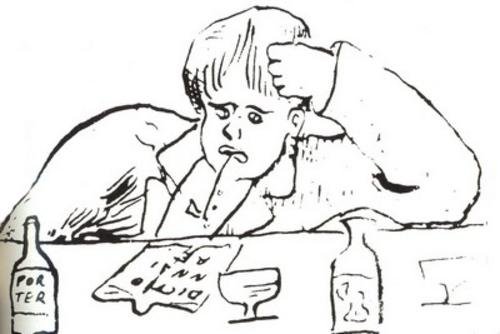
Contributions and valuation
Many aspects can be noted in the assessment of Rimbaud's work and its significance for modern poetry. Here are just a few of them.
From his letters, we can see the conception of the poet as a seer, as someone who cultivates the faculty of glimpsing, to which is added the search for the new and the poetic possibilities of the conscious alteration of the senses through the exercise of their inner resources.
Its contribution is fundamental in the passage from poetry in verse to that written in prose; although it has its beginnings in Bertrand and Baudelaire, Rimbaud produces the radical change in its two books mentioned, which constitutes a qualitative leap in modern poetry. And in the end, Rimbaud is aware that it is not only the external form that makes the true mood of poetry; it depends on the internal process from which it sprouts or that it originates.
Although there is a sonorous and rhythmic work in his word, the visual qualities prevail over the auditory ones. As critics warn, with this feature Rimbaud seems to anticipate the affinity between poetry and plastic art that would develop in the twentieth century. This quotation from Rimbaud is very clear in this regard: "We have to tear from painting its old habit of copying to make it sovereign. Instead of reproducing objects, he must provoke excitement by means of lines, colors and contours taken from the outside world, but simplified and dominated: a true magic".
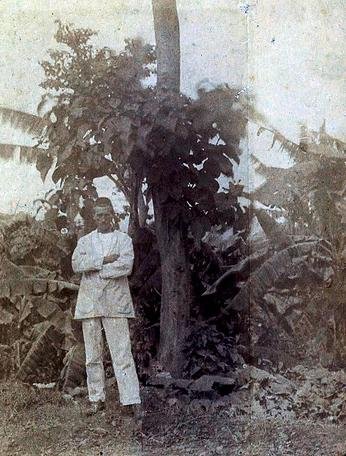
Thus, Rimbaud's contribution to the conception of the poetic subject and its later definitive influences has also been declared, especially in movements as capital to contemporary aesthetics as Surrealism was. We quote Balakian: "The subtle and profound cult of the 'I' suggested by Rimbaud constituted a revision of the concept of the unconscious and the dream destined for future poets.
Rimbaud carries out in his poetry what some have called "destruction of reality" or "de-realization". There has been talk of "fleeing from reality", but in truth it is a derangement of reality under the power of the poetic subject. Rimbaud's rebellious position emerges as an awareness of the insufficiency of the apprehension of the real and the inaccessibility to the unknown, and then reality surrenders to us as chaotic, decomposed. What can be called the "dialectic of modernity", which has characterized poetry and the art that followed it, as Friedrich points out.
So the "hell" of A season... is not an imaginary construction of the hereafter, "but a delirium here on earth". Rimbaud's rebellion against a world dominated by hypocritical, enslaving values, which he saw as a Christian heritage. However, as Friedrich rightly says: "Rimbaud's opposition is precisely the kind of opposition that stands under the power of whatever they stand against. Rimbaud himself knew it. In A season in hell this consciousness is transformed into poetry."
Nevertheless, his life and work will continue to illuminate - as an essential beacon, even after his retirement and silence - the poetry and art of our times and of the future, undoubtedly, as happened with the assimilation of his work by the young people of the 20th century (Bob Dylan, Jim Morrison, Patti Smith, in music) and numerous writers (Octavio Paz, Rafael Cadenas, to cite two very dear to me), or in the cinema (Total eclipse of Agnieszka Holland).
Bibliographic references
Balakian, Anna (1969). The symbolist movement. Spain: Edit. Guadarrama.
Friedrich, Hugo (1974). Structure of modern lyrics. Spain: Edit. Seix Barral.
Rimbaud, Arthur (1980). Complete work (bilingual edition) (10th edition). Spain: Libros Río Nuevo
Todó, Lluís (1987). The Symbolism. Spain. Edit. Montesinos.
https://en.wikipedia.org/wiki/Arthur_Rimbaud
https://en.wikipedia.org/wiki/A_Season_in_Hell
https://www.biblioteca.org.ar
Written by @josemalavem
Click the coin below to join our Discord Server
)
Congratulation for having completing this series @josemalavem, especially considering your health issues. I hope you get better.
This is a fine work of schilarship and criticism.
The things we've been living lately makes us feel that the poet speaks for us when he writes
I had to visit the ER of the Cumaná central hospital last night and I think that all the chronicles of hell can be written from there. I can't still get rid of the stench.
The images torture me. We are living hellish times.
Interesting that a work so original and evocative like "A season in Hell" was produced so intimately and could have been lost and forgotten.
I loved how you clearly highlighted the poet's contributions to the art
This part in particular is very pignant
I think that the main reason most issues around the world never get solved is because people refuss to see them as what they are. We insist on being romantic and optimistic about everything asuming there's still some magic power in wishful thinking. In the mean time, reality keeps slapping and burying us.
Perhaps we all write our own "condemned man's notebook", to use the image of Rimbaud in the first part. As you say with that terrible experience, we are witnessing an almost daily "hell", especially in countries like Venezuela, subjected to such deplorable living conditions. Rimbaud's vision, although from a very demanding poetry in its form, was neither sweetened nor falsely romantic. He brought to his word the exercise of that clairvoyance that he demanded.
Thank you for your vital comment, @hlezama.
As I told you before, A Season in Hell is one of my favorite Rimbaud books. With this book I discovered that some words and experiences, though dark and sad, also serve to poetize. I agree with you when you say that this book is a reflection of a real society. Each being, each one of us, surely, has our own particular hell, where we may spend a season or, on the contrary, live it all eternity. Excellent conclusions close your post, thank you for sharing.
Something similar to what you said, @nancybriti, I wrote to @hlezama on purpose of his comment. As I proposed in my article, the "hell" Rimbaud speaks of is earthly, and the alternative to it should also be on the same plane: "an earthly spirituality", claims Rafael Cadenas. It has always called attention me that after A season in hell, Rimbaud had written Illuminations. Grateful for your touching comment, @nancybriti.
Apologies to all for double post this article, we had a slight glitch with scheduled posting.
Its a nice one.
Posted using Partiko Android
Hi, @adsactly!
You just got a 0.31% upvote from SteemPlus!
To get higher upvotes, earn more SteemPlus Points (SPP). On your Steemit wallet, check your SPP balance and click on "How to earn SPP?" to find out all the ways to earn.
If you're not using SteemPlus yet, please check our last posts in here to see the many ways in which SteemPlus can improve your Steem experience on Steemit and Busy.